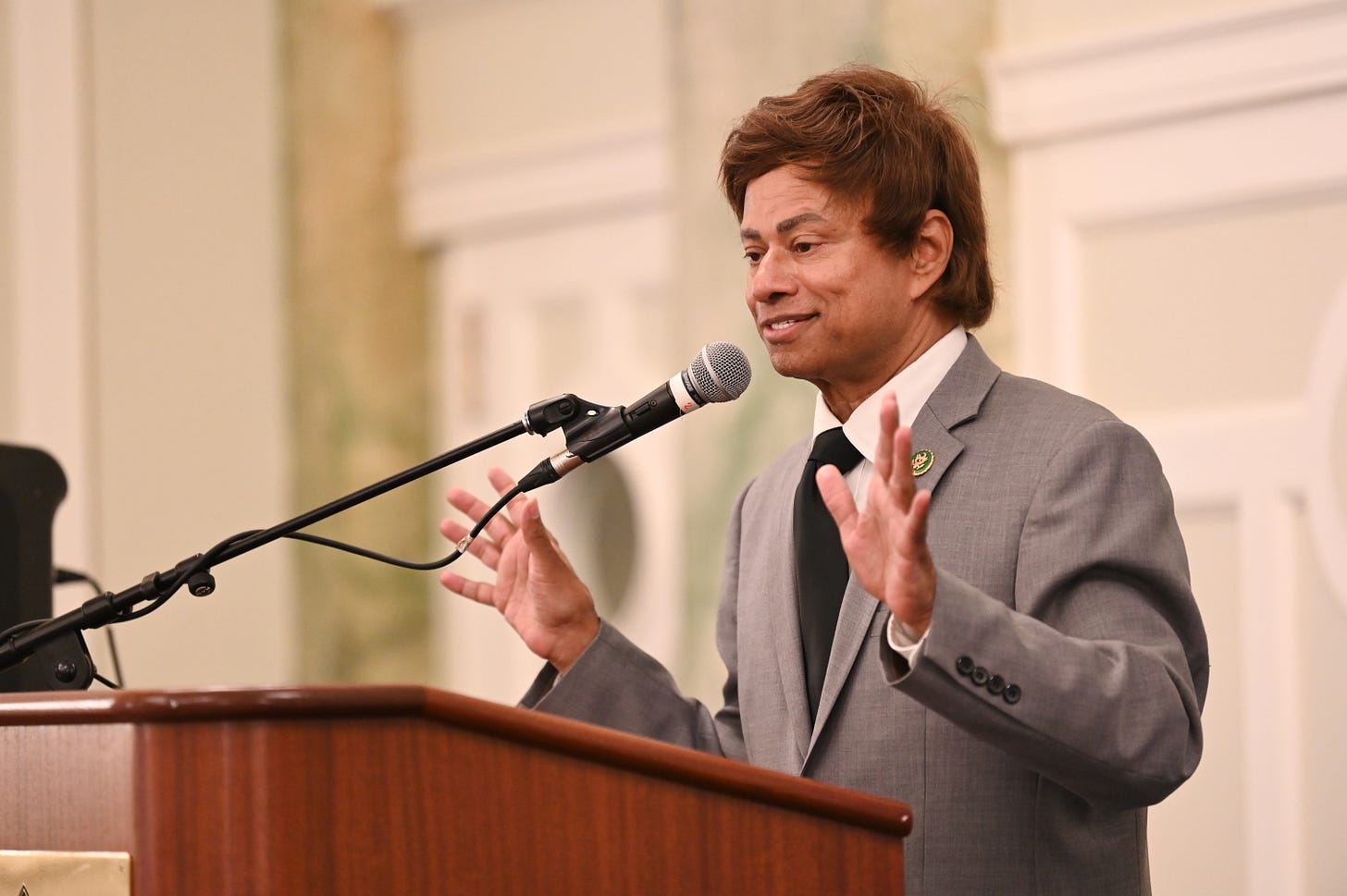"H1B Visas Help America Stay Competitive": Rep. Thanedar on the Economic Benefits of Immigration
Plus, the congressman explains his "no" vote on Laken Riley Act.
Last Wednesday, Rep. Shri Thanedar, the two-term Democratic senator from Michigan was kind enough to have us by his office for an immigration Q&A where we focused on two topics: H1B reform and the Laken Riley Act. As always, because migrant policy is such a hot-button political issue, we include the full transcripts of our immigration Q&As with lawmakers complete and unabridged—
Nico: Tell me a little more about your vote on the Laken Riley Act. What do you think of it, how did you vote? Several of your colleagues I’ve asked questions in regard to the detriments of this bill. Where do you think it’s going to go?
Rep. Thanedar: The chances of it being misused, you know- people who are not convicted of a crime- somebody accused of a crime, and then being deported. That was the concern, I think, of some Democrats who voted against it.
Nico: Alexandria Ocasio-Cortez mentioned the bill was a smokescreen scenario that could apply to not just immigrants but all Americans. What do you think about that?
Rep. Thanedar: It’s possible. Also, there’s alot of potential for misuse. The basic concept was not wrong but the potential of misuse was so huge that it was important for me to vote no on it.
Nico: Was there any specific elements of the bill that you were concerned about?
Rep. Thanedar: Well, you know, just an accusation, someone using that, not necessarily a conviction of a crime, that was my main concern about it.
Reporter: The following, where the State Attorney Generals, if they felt that the Federal Government, if their immigration policy affected their state, they could sue the federal government. What’s your take on that?
Migrant Insider is sponsored by:
Rep. Thanedar: Well, again, the States have a right to protect their wellbeing and if that means they want to disagree with the Federal Government and Federal Government policies, then they want to seek remedies, so be it.
Nico: What is your take on the fact that some Democrats- 48 of them- voted on it? What do you make of that?
Rep. Thanedar: Oh, you got to ask them.
Reporter: Alright then, straight on to the H1B visa. What is your take on that? I asked you last time about what you thought about Bernie Sanders’s remark on the H1B visa program.
Rep. Thanedar: Well, look, it’s all well-intentioned. People want to put America first and I want to put America first. I am concerned about American jobs, ensuring that…so, I think we are all on the same page. We are all nationalists, we’re all pro-America, we’re all wanting American interests and American workers’ interests to be protected. So, there should not be any disagreement about it.
Now, what the H1B does, in my opinion, it helps create American jobs. In my opinion, it helps grow the American economy, and ultimately, it helps our taxpayers, it helps our growth, it keeps America at the top of innovation and discovery and it keeps that edge that America has. Now, can we do that with American native born technology professionals? If we can do that, that’s great. But, unfortunately, we do not have sufficient numbers of Americans who have the skillset and that’s a separate issue.
Nico: Yes, that is what Elon Musk is arguing…
Rep. Thanedar: It’s a separate issue, and how do we create opportunities for Americans to acquire those technological skills? How do we encourage young people to choose STEM as a career? How do we make that easier for people? That’s a different debate. If that debate can create sufficient Americans qualified for these jobs, that should be great.
Nico: What aspects of the H1B visa reform would you be looking into, something you’d be interested in trying to change?
Rep. Thanedar: Well, look, every H1B that is hired, research has shown multiple American jobs. So, the idea should be- as long as the program is not misused- we should increase the number of H1B visas available. Our American businesses should not be limited by these artificial limits. If the businesses need more technically skilled employees, they should be able to get those. If they’re not accessible or available domestically, then they should be able to hire people outside of the United States.
We should have a fairly open policy as far as American educated foreign nationals. Businesses should be able to hire them. There should be a different set of criteria for American educated Master’s level, PhD level, engineering level graduates. Now again, there are safeguards built into the H1B program. The employers have a requirement to labor certification, they need to pay prevailing wages, and they need to advertise that such jobs are available so that Americans who are qualified are able to apply. Currently, our unemployment rate is about 3.5%. If you look at the unemployment rate among the technology area, there is no unemployment in that area.




